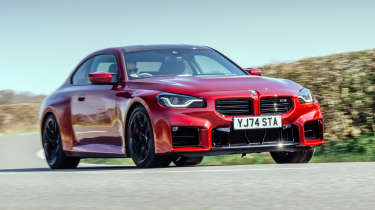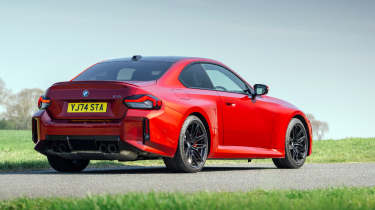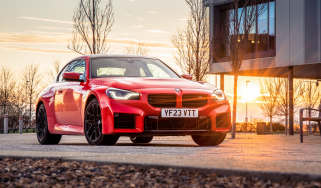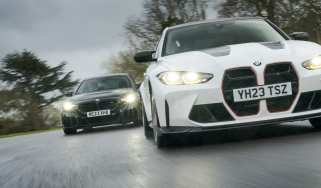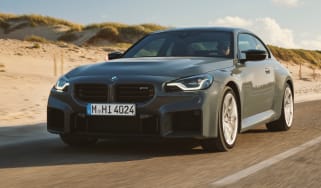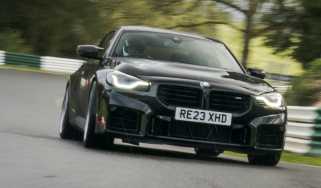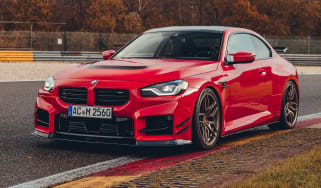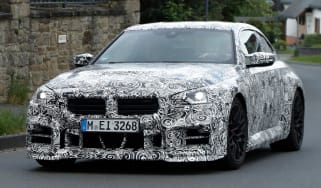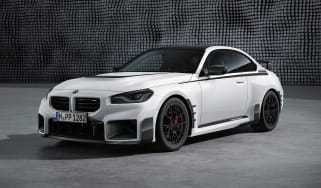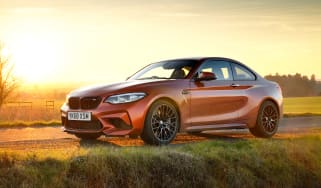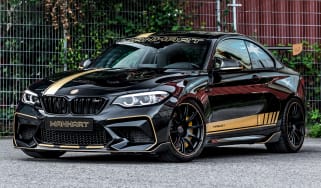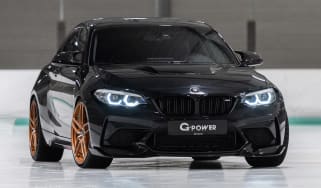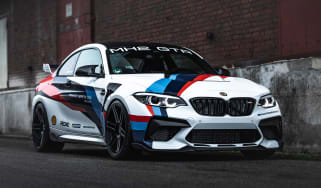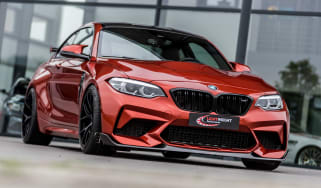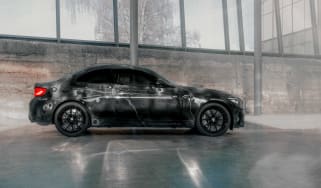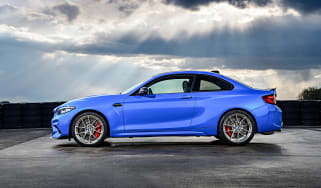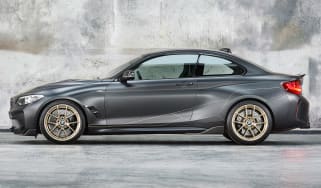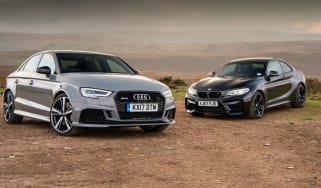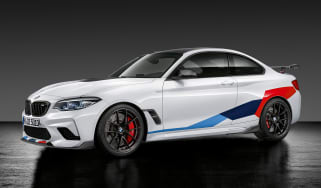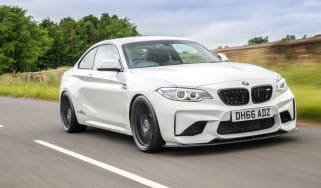BMW M2 2025 review – A better M3 than the M3?
BMW’s subtle changes to the M2 include a bump in power and subtle interior tweaks. It’s still a barrel of laughs
If the G87 BMW M2 were to follow the release trajectory of its predecessor, the F87 M2, right about now we’d be getting a more focused, more powerful M2 Competition. As it transpires, no such model is arriving with the updated (LCI, in BMW speak) 2025 BMW M2. But the new car does arrive with a bump in power and detail revisions inside and out, as we await the arrival of the ultimate G87 M2 iteration, the incoming M2 CS.
Amongst the noise around the new M5 and high-riding behemoths like the XM, the M2 remains a reminder that BMW M is still more than capable of delivering on the classic sports coupe recipe it created with the E30 M3.
Based on a shortened M4 platform means it’s broader and heavier than its precedessor, but it still retains a relatively compact body, a gutsy six-cylinder engine, rear-wheel drive with the option of a manual gearbox. The M2 is still therefore, about as traditional as modern M cars get. Based on the brilliant M4 but with 110mm chopped out of the wheelbase, less weight and bespoke chassis tuning, the M2 recipe is a tantalising one, promising ‘big engine, small car’ character that made its ancestor, the charismatic 1M, so irresistible.
More reviews
Group tests
- BMW M3 CS v Litchfield BMW M2: which makes the better track car?
- BMW 230i M Sport v Volkswagen Golf GTI Clubsport
Long term tests
Reviews
We’ve tested the M2 extensively on road and track to discover whether it lives up to its brilliant predecessors – as well as rivals from Porsche, Alpine and Mercedes-AMG. We’ve also now spent a few hundred miles in the updated, more powerful G87 M2, to see if it still does the business.
BMW M2 in detail:
- Engine, gearbox and technical highlights > BMW’s S58 straight-six has extra grunt now, harnessed by a shorter M4 chassis with a choice of manual or automatic.
- Performance and 0-62mph time > If you can shift quickly enough, the manual M2 reaches 62mph in 4.2sec. The automatic M2 is quicker still at 4 seconds flat, both improving on the pre-facelift by 0.1sec.
- Ride and handling > The M2’s boisterous character is familiar from its predecessors, but its weight does bring some limitations
- Interior and tech > Beautifully built and with tech you’d normally find in the class above
- Mpg and running costs > Expect mpg in the mid-teens in mixed use, and set aside budget for those M4-sized front and rear tyres
- Design > Though short, tough and bursting with muscle and presence, aspects of the M2 – that blocky snout – look as if they’ve not been styled at all
Price and rivals
When the original M2 launched in 2016, it had plenty of playmates from other manufacturers to spar with; now it’s a different world, and there are fewer worthy foes than ever.
The price is up nominally in 2025 for the updated M2, which starts from £68,705. This is liable to swell however. Want a manual? That’ll be an extra £1925. Want the ‘M Race Track Pack’, which bundles in the carbon seats, carbon roof, carbon trim and the M Drivers pack? That’ll be £9500 please. Want the carbon roof on its own? No longer standard, that’s now £2300.
For the £68,705 price of a *standard decontented M2, you can still (just about) choose from a pair of purpose-built two seaters: Porsche’s 718 Cayman S and the new Alpine A110 GTS. The Porsche delivers a sweetly-tuned driving experience but its grumbly turbocharged flat-four engine lets it down, despite offering similar performance to the M2.
The A110 is in the same ballpark for raw speed in its more potent versions, but weighing over 500kg less than the BMW, it feels very different to the M2 and even the Porsche. It treads lightly across the ground and soaks up the road in a way that Lotus owners will recognise, albeit while sacrificing the M2’s extra space, tech and rear seats. The Lotus Emira is another bespoke sports car you might consider, until you realise it costs £89,500 in four-cylinder Turbo SE form…
The Mercedes-AMG A45S packs the Emira’s engine into a practical hatchback body, and it rewards to a much higher level than its mechanical specification would suggest. In some ways it's actually a more exciting car than the M2, feeling more alive and cohesive when stretching the limits of its chassis. It may seem nonsensical to spend c£65k on a hatchback instead of a straight-six coupe, but the AMG just about has the measure of the M2.
Ford’s latest Mustang is a left-field choice but one with bags of charisma and enough dynamic ability to go with it, all for around £10k less than the BMW. The Dark Horse is nominally more expensive than a standard M2, but pretty much matched our manual test car on price. Venturing into the classifieds opens up more options, including 991-generation 911 Carrera Ts and nearly-new BMW M4s.
BMW M2 specs (G87)
| Engine | Straight-six, 2993cc, twin-turbo |
|---|---|
| Power | 473bhp @ 6250rpm |
| Torque | 406lb ft @ 2650-6130rpm (443lb ft auto) |
| Weight | 1705kg |
| Power-to-weight | 282bhp/ton |
| 0-62mph | 4.2sec (4sec auto) |
| Top speed | 177mph (M driver’s package) |
|
Basic price Price as tested |
£68,705 £70,630 |
